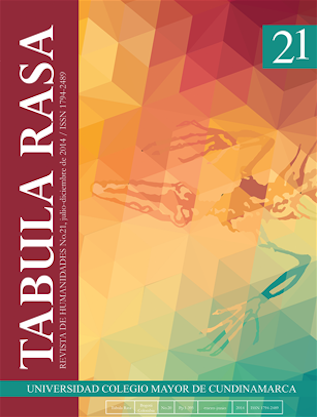La cooptación del feminismo islámico en el euro-islam y la pérdida de la liberación
Mostrar biografia dos autores
Este artículo sostiene que ha habido un cambio definitivo y negativo en la trayectoria del llamado feminismo islámico. Este cambio se ha efectuado en gran parte en escenarios occidentalizados, en particular como parte del creciente discurso del euro-islam, el islam europeo, la indigenización del islam, etc., que es un discurso que viene no solamente de los gobiernos (aunque es replicado, aplaudido y recompensado por los gobiernos de la región), sino de la sociedad civil, los activistas y los intelectuales musulmanes mismos. Este artículo propone parámetros para el uso del término «feminismo islámico» sin dejar de reconocer lo problemático del mismo. El artículo concluye con una revaluación del proyecto feminista islámico en ciertas formas como un proyecto que ha sido secuestrado y usado para subvertir la meta de la liberación femenina en sí y de las mujeres musulmanas en particular negando a las musulmanas —y en consecuencia a todas las mujeres de color o a quienes se expresen en oposición política a las normas y políticas nacionales o internacionales de Occidente— el derecho a definir sus propios términos de liberación.
Visualizações de artigos 174 | Visitas em PDF 145
Downloads
Ameli, S.R. y A. Merali. 2004. Londres, Comisión Islámica de Derechos Humanos.
Ameli, S.R. y A. Merali. 2006. Hijab, Meaning, Identity, Otherization and Politics: British Muslim Women. Londres, Comisión Islámica de Derechos Humanos.
Ameli, S.R., M. Elahi y Merali, A. 2004. Social Discrimination: Across the Muslim Divide. Londres, Comisión Islámica de Derechos Humanos.
Ameli, S.R., A. Azam y A. Merali. 2005. Londres, Comisión Islámica de Derechos Humanos.
Ameli, S.R., B. Faridi, K. Lindahl y A. Merali. 2006b. Law and British Muslims: Domination of the Majority or Process of Balance. Londres, Comisión Islámica de Derechos Humanos.
Ameli, S.R., S.M. Marandi, S. Ahmed, A. Merali y S. Kara. 2007. The British Media and Muslim Representation: The Ideology of Demonisation. Londres, Comisión Islámica de Derechos Humanos.
Anderson, E. primavera, 2011. “Feminist Epistemology and Philosophy of Science”, en: Edward N. Zalta (ed.), The Stanford Encyclopedia of Philosophy (edición primavera de 2011), URL = http://plato.stanford.edu/archives/spr2011/entries/feminism-epistemology/.
Ansari, F. 2006. British Anti-Terrorism: A Modern Day Witchhunt. 2a. ed., Londres, Comisión Islámica de Derechos Humanos.
Ansari, F. 2007. “The Crime of Rhyme: The Extraordinary Case of Samina Malik” http:// www.islamicawakening.com/viewarticle.php?articleID=1328
Asadabadi, S.M. 2011, 20 de mayo. “The Secret War: The Zionist Spy and the Formation of the Shia-Con (aka UMAA)” http://oppression.org/site/index.php/world/americas/148- the-secret-war-the-zionist-spy-and-the-formation-of-the-shia-con
Blair, T. 2005, 16 de julio. «Texto completo: Blair Speech on Terror» http://news.bbc. co.uk/1/hi/uk/4689363.stm
Biko, S. 1987. I Write What I Like. Londres, Heinemann.
Briggs, R. y J. Birdwell. 2009. Radicalisation among Muslims in the UK. Documento de Trabajo sobre Políticas MICROCON 7, Brighton: MICROCON.
Briggs, R., C. Fieschi y H. Lownsbrough. 2006. ‘Bringing it Home: Community-based approaches to counter-terrorism’. Londres, Demos.
Bruce, D. 2006, septiembre. “Racism, Selfesteem and Violence in SA: Gaps in the NCPS” explanation?’ SA Crime Quarterly (17): 32-36.
Cameron, D. 2011, 5 de febrero. “Transcripción completa | David Cameron | Speech on radicalisation and Islamic extremism” New Statesman. Recuperado: http://www. newstatesman.com/blogs/the staggers/2011/02/terrorism-islam-ideology
EA Worldview. 2011, 20 de abril. ‘Documento de WikiLeaks sobre Siria: The US
Government Support of Opposition Groups, Civil Society, and Human Rights (abril, 2009)’http://www.enduringamerica.com/home/2011/4/20/syria-wikileaks-documentthe-us-government- support-of-opposi.html
Fanon, F. 2001. The Wretched of the Earth. Londres, Penguin.
Ferguson, N. 2011. Civilization: The West and the Rest. Londres, Allen Lane.
Fukuyama, F. 1992. The End of History and the Last Man. Nueva York, The Free Press.
Greer, G. 1999. The Whole Woman St Ives: Doubleday.
Hamza, K. 2011, 5 de febrero. citado en “Ikhwanweb: Egypt’s Revolution Is a People’s Revolution with No Islamic Agenda”. Disponible en: http://www.ikhwanweb.com/ article.php?id=27963
Huntington, S. 1996. The Clash of Civilizations and the Remaking of World Order. Nueva York: Simon & Schuster.
Jad, I. 2011. “Islamist Women of Hamas: between feminism and nationalism” Inter Asia Cultural Studies 12:2, 176-201.
King, J.E. 1991. “Dysconscious. Racism: Ideology, Identity, and the Miseducation of Teachers”. The Journal of Negro Education. 60(2): 133-146.
Kramerae, C. 1981. Women and Men Speaking; Frameworks for Analysis. Rowley, Massachusetts, Newbury House.
Merali, A. 2012 (en prensa). Blaming the Victim, the Impossible Muslim and the Big Lie: Internalisation of Government Demonisation of Muslims in the UK. París, Maison des Sciences de l’Homme.
Mir-Hosseini, Z. 2010. “Understanding Islamic Feminism. An interview with Ziba
Mir-Hosseini”. Disponible en: http://www.countercurrents.org/sikand070210.htm Recuperado: 20.12.11.
Mir-Hosseini, Z. 2011. “Beyond ‘Islam’ vs ‘Feminism’”. IDS Bulletin, 42: 67-77.
Moghaddem, V. verano 2002. “Islamic Feminism and Its Discontents: Toward a Resolution of the Debate”. Signs, 27(4):1135-1171.
Newcomb, S.T. 2008. Pagans in the Promised Land: Decoding the Doctrine of Christian Discovery, Goldon: Fulcrum.
Nimako, K. y G. Willemsen. 2011. The Dutch Atlantic: Slavery, Abolition and Emancipation (Decolonial Studies, Postcolonial Horizons. Londres: Pluto Press.
Pyke, K. y T. Dang. junio, 2003. “‘FOB’ and ‘Whitewashed’: Identity and Internalized Racism Among Second Generation Asian Americans”. Qualitative Sociology. Países Bajos, Springer.








